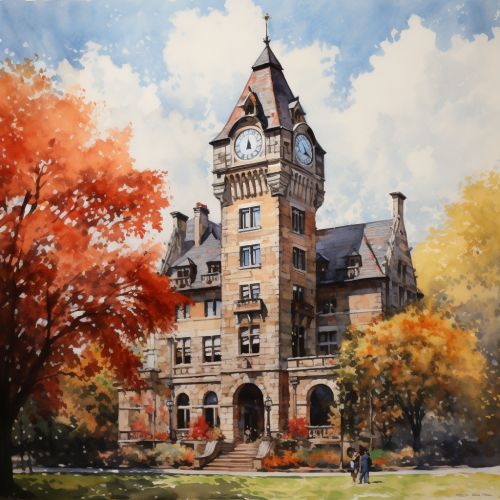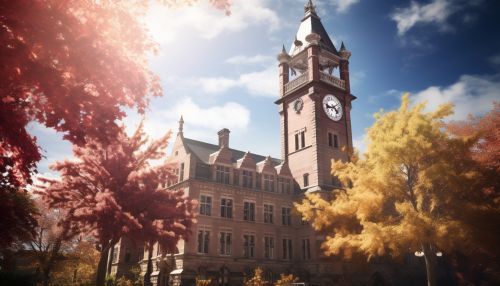Julius Robert von Mayer
Early Life
Julius Robert von Mayer was born on November 25, 1814, in Heilbronn, a city in southern Germany. His father, Johann Friedrich Mayer, was a pharmacist and his mother, Christiane Ortmann, was a homemaker. He was the eldest of three children. From an early age, Mayer showed an interest in the natural sciences, particularly physics and chemistry.
Education
Mayer attended the local Gymnasium in Heilbronn, where he excelled in his studies. In 1832, he enrolled at the University of Tübingen to study medicine. During his time at the university, he developed a keen interest in physiology and began conducting experiments in the university's laboratory. He completed his medical degree in 1838.


Career
After graduating, Mayer joined a Dutch merchant ship as a ship's doctor. During his voyage to the Dutch East Indies (now Indonesia), he observed that the venous blood of the sailors was a brighter red in the tropics than in colder climates. This observation led him to hypothesize that less oxygen was needed to maintain body temperature in a warm environment than in a cold one, which eventually led him to formulate the principle of conservation of energy.
In 1841, Mayer returned to Heilbronn and established a medical practice. However, his interest in physics and chemistry remained, and he continued to conduct experiments in his spare time. In 1842, he published his first scientific paper, "Remarks on the Forces of Inorganic Nature", in which he proposed that heat and work are equivalent.
Contributions to Science
Mayer is best known for his formulation of the principle of conservation of energy, which states that energy cannot be created or destroyed, only transformed from one form to another. This principle, also known as the first law of thermodynamics, is a fundamental concept in physics and has wide-ranging applications in various fields of science and engineering.
In 1845, Mayer published a paper titled "On the Mechanical Equivalent of Heat", in which he calculated the mechanical equivalent of heat. This was a significant contribution to the field of thermodynamics, and it laid the groundwork for the development of the steam engine and other heat engines.
Mayer also made significant contributions to the field of biochemistry. He proposed that the energy released in chemical reactions, particularly in the oxidation of food substances in the body, is converted into heat and work. This concept is now known as the Mayer's relation.
Recognition and Legacy
Despite his significant contributions to science, Mayer's work was not immediately recognized by the scientific community. However, his work was later acknowledged, and he received several awards and honors for his contributions. In 1867, he was elected a member of the Royal Swedish Academy of Sciences. In 1871, he was awarded the Copley Medal by the Royal Society of London.
Mayer's work has had a profound impact on various fields of science, particularly physics and biochemistry. His principle of conservation of energy is a fundamental concept that underpins much of modern science and technology.
Personal Life and Death
Mayer married Minna Volk in 1844. The couple had five children. Mayer suffered from mental health issues later in life, which led to a period of hospitalization. He died on March 20, 1878, in Heilbronn.
